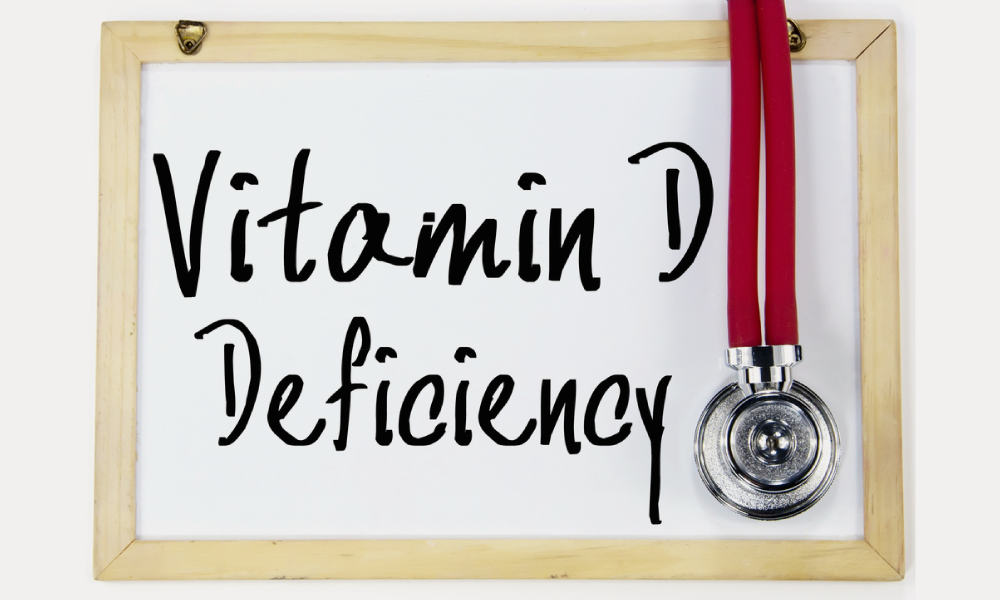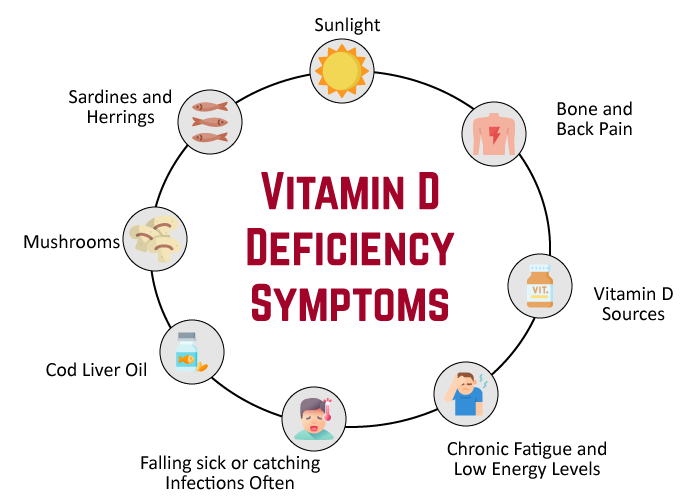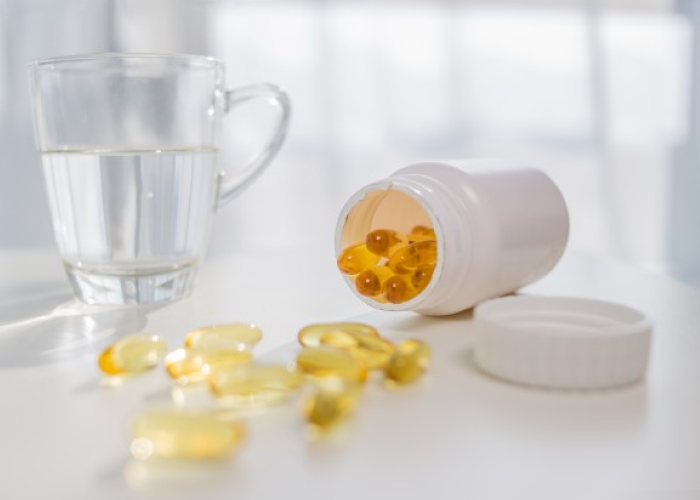
Vitamin D Deficiency: How to Diagnose and Deal With it
While there are limited natural sources of Vitamin D, it happens to be one of the most important nutrients for your body. Unlike other vitamins, vitamin D facilitates various functions in the body because it acts as a hormone instead of a vitamin and hence there are several vitamin D receptors throughout your body.
It is extremely important to maintain Vitamin D levels in your body. Vitamin D performs several critical functions. Here is a list of Vitamin D benefits-
- It helps strengthen your immune system and helps ward off illnesses and helps you fight infections.
- One of the most well-known Vitamin D benefits is that it helps strengthen your bones. It helps the body absorb calcium.
- It enhances muscle contractions. Since every activity is a result of muscle contractions and relaxation, in turn increasing your strength.
- Vitamin D also has anti-inflammatory properties which provide lung health benefits.
- Studies suggest that lower levels of Vitamin D cause higher levels of blood pressure. Hence one of the Vitamin D benefits is a healthy heart as well.
- Vitamin D also regulates the effectiveness of Leptin, which is a hormone responsible for ‘feeling full’ after a meal. Hence low amounts of Vitamin D also cause unhealthy weight gain.
Vitamin D Deficiency Causes-
There are several factors that affect the absorption of calcium in the body. While one of the leading factors of vitamin D deficiency happens to be lack of the nutrient in your diet, there are several other factors that may affect your Vitamin D levels-
- Having darker skin often leads to a lower amount of Vitamin D being absorbed. Hence one would need to spend more time in the sun to avoid a deficiency.
- In some instances, the kidneys are unable to convert the nutrient to its active form, and hence increasing the risk of deficiency.
- Oftentimes, the digestive tract is unable to absorb a sufficient amount of nutrients from their food, diseases such as Ulcerative Colitis may cause this phenomenon. This may lead to a deficiency.

Vitamin D Deficiency Symptoms
There are many telling signs that point toward a Vitamin D deficiency, however, they are subtle and difficult to spot. Here are some of the most common signs that may indicate that you need to get your Vitamin D levels checked-
Falling sick or catching Infections Often
One of the important functions of Vitamin D is to strengthen the immune system and keep you healthy. If you tend to fall sick often and catch frequent colds or other infections chances are you have a vitamin D deficiency which has resulted in the weakening of your immune system.
Chronic Fatigue and Low Energy Levels
Vitamin D is correlated to lack of energy levels although this is one of the least known causes for the low quality of life. Several studies suggest that vitamin D supplements actually helped people with very low blood pressure levels and tend to alleviate people’s mood and their energy as well. If you feel tired every day and suspect you may have a vitamin D deficiency you should consult your doctor.
Bone and Back Pain
Vitamin D is responsible for the absorption of calcium in your body and helps strengthen your bones. This means that a deficiency of Vitamin D inevitably leads to calcium deficiency. Hence chronic backaches or bone aches may be an indication that you have calcium and Vitamin D deficiency.
Vitamin D Sources
While the sources of Vitamin D are limited in nature, it is important to make a conscious effort to include them in your diet to avoid a Vitamin D deficiency. Some of the most nutrient-dense Vitamin D sources are as follows-
Sunlight
Exposure to sunlight for a sufficient amount of time. It is a common misconception that only the morning sun provides Vitamin D. being exposed to sunlight for 15 minutes to half an hour depending on your skin tone may help you get sufficient Vitamin D.
Sardines and Herrings
For meat consumers, this is one of the richest sources of Vitamin D and contains about 112 International units in just 100 grams. The best thing about these small fish is that they can be consumed fresh, pickled, and are available in canned form.
Cod Liver Oil
Cod liver oil is a great source of many nutrients that are rarely found in natural foods such as Vitamin B12 and D. In addition to this, cod liver oil is also rich in omega-3 fatty acids. One tablespoon of cod liver oil contains about 448 international units of Vitamin D.
Mushrooms
While there are limited vegetarian options that contain Vitamin D. Much like the human body, mushrooms can synthesize Vitamin D when exposed to sunlight. Certain varieties of mushroom can contain up to 2,300 international units of Vitamin D.

Vitamin D Deficiency Treatment
Although there is no consensus on the adequate amount of Vitamin D for good health, many health experts and professionals advise consuming 600-700 international units every day for people between the ages 1 to 70. For the elderly, a higher amount of Vitamin D, about 800 international units is considered optimum. The best way to treat Vitamin D is the right diet and supplements. For patients who suffer from severe deficiency having fortified food ( food in which nutrients are added) may help tackle their symptoms and lead to better health.
Less than 12 milligrams of vitamin D per millilitre of blood indicated a deficiency and one should consult a doctor and get the right vitamin D supplement doses for the same. Vitamin D deficiency affects many bodily functions and one should not take it lightly.